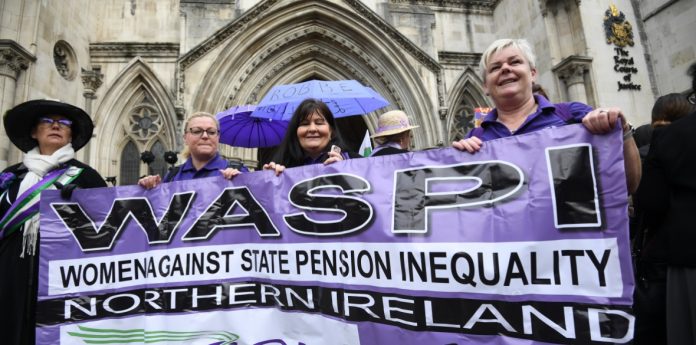A group of British women born in the 1950s are seeking compensation after the government raised the state pension age, leaving many financially vulnerable as the cost of living remains high.
The group Women Against State Pension Inequality (WASPI) is seeking compensation, arguing that women affected by the changes received minimal notice, unlike men, and were therefore unprepared for today’s high cost of living.
WASPI began campaigning in 2015, seeking redress for the UK government’s sudden change to the retirement age, which increased the retirement age for women from 60 to 65 in 1995 and then to 66.
Unlike men, who received six years’ notice of the increase, many women born in the 1950s had only one or two years to prepare for the six-year increase. They argue that this discrepancy leaves them financially vulnerable and unprepared for retirement.
In March, the Parliamentary Health Service Ombudsman (PHSO) admitted that the government had failed to properly inform women about the changes. But despite this finding, the government has yet to introduce a compensation scheme.
WASPI held a rally in Parliament Square in London last week to coincide with the Labour Party’s first budget announcement since coming to power, and called on the government to address their grievances.
Lynne Ruddock, WASPI co-ordinator, said the ombudsman’s findings should be the basis for compensation. She told media, emphasising that the movement intends to continue its campaign:
They’ve been given a varying amounts of compensation that each WASPI woman should be given.
Ruddock criticised the previous Conservative government for skirting the issue, saying they ignored it knowing “they would not be re-elected” in elections earlier this year.
She also accused the new Labour government of not supporting the WASPI case in the past now that it was in power. she said:
Before Labour were re-elected, in opposition, they were massive, massive supporters of our cause. Now they’re in government, they’re not interested.
Barbara Parker, another local WASPI coordinator, emphasised the financial hardship the changes have led to, especially amid the rising cost of living.
For many of the women affected, the financial losses are significant, totalling around £40,000 to £50,000 per person.
